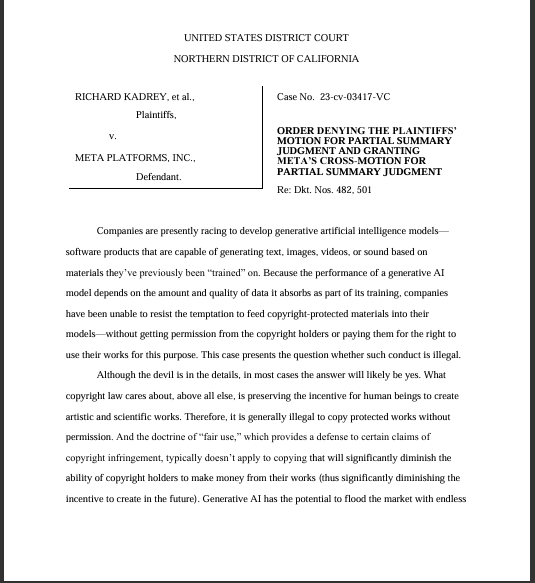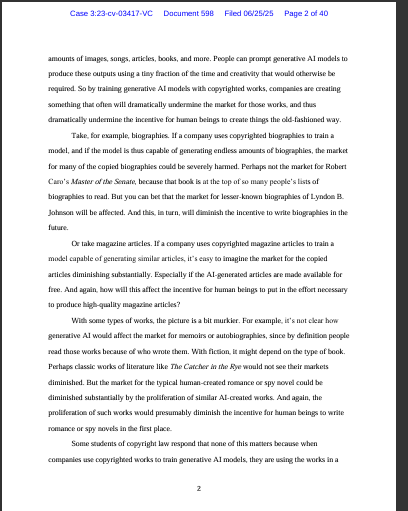A federal judge who ruled in favor of Meta remains skeptical that the company’s use of copyrighted materials for AI training qualifies as fair use.
Meta achieved a significant legal victory in an AI copyright lawsuit filed by 13 authors, who claimed the company illegally trained its AI systems on their work without consent. On Wednesday, Judge Vince Chhabria ruled that Meta is “entitled to summary judgment on its fair use defense” regarding the claim that copying the plaintiffs’ books for large language model (LLM) training data constituted infringement.
However, the judge highlighted weaknesses in Big Tech’s AI ecosystem and Meta’s fair use defense. “This ruling does not imply that Meta’s use of copyrighted materials for training its language models is lawful,” Judge Chhabria stated. “It only indicates that these plaintiffs made incorrect arguments and failed to build a supportive record.”

This ruling follows a separate victory for Anthropic, where a different federal judge determined that training its models on legally purchased books is fair use.
ICYMI: Tipper Truck Crashes into Ditch on Cape Coast-Takoradi Highway

Judge Chhabria identified two of the authors’ arguments as “clear losers”: that Meta’s Llama AI can reproduce snippets from their books and that using their works for AI training without permission diluted their licensing opportunities. “Llama is not capable of generating enough text from the plaintiffs’ books to matter, and the plaintiffs are not entitled to the market for licensing their works as AI training data,” the judge wrote.
The plaintiffs did not present a “potentially winning argument” that Meta’s copying would flood the market with similar works, causing market dilution, according to Judge Chhabria. He also referenced the Anthropic ruling, noting that Judge William Alsup dismissed concerns about the harm generative AI could inflict on the market for the works it utilizes for training.
SOURCE: THE VERGE


























